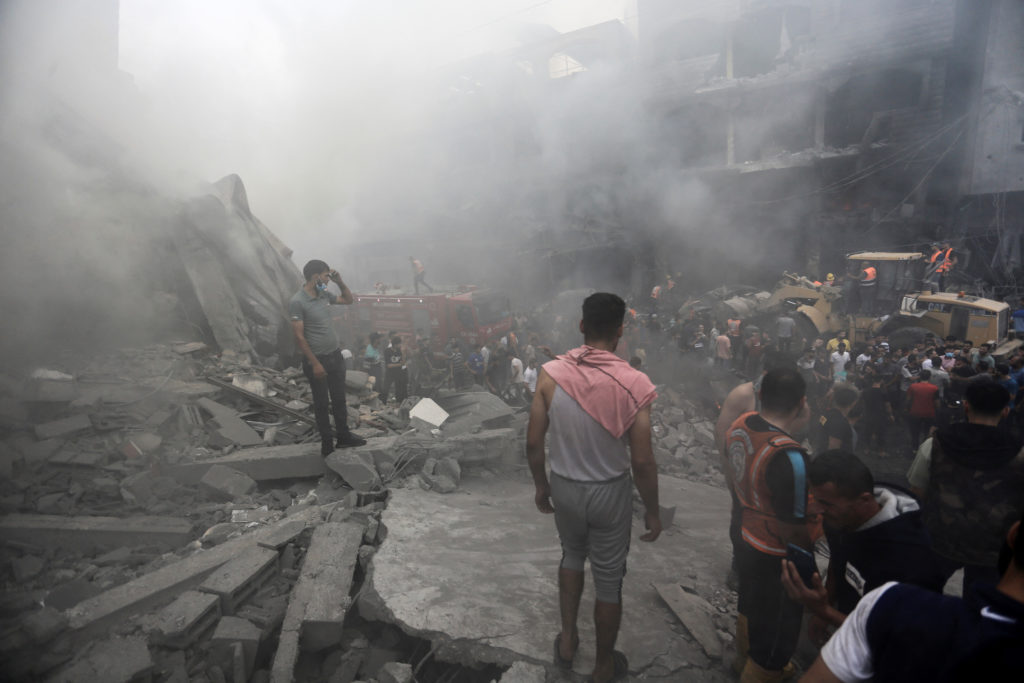The haunting screams echo as a group digs through the soil, uncovering artifacts like a watch and a sandal, reminiscent of lost lives. This scene from the premiere of "Flowers of Srebrenica" at Sarajevo's War Theatre captures not only the horror of the 1995 massacre, which resulted in over 8,000 Bosnian men and boys being murdered but also the enduring pain and unresolved grief that continues to haunt Bosnia and Herzegovina.
During the atrocity, Bosnian-Serb forces led by General Ratko Mladić claimed control of Srebrenica, a supposed safe haven for Bosniaks, who believed they were protected by UN peacekeepers. Instead, Dutch troops watched as Mladić's forces forcibly relocated families, separating women and children while overseeing the systematic execution of men and boys. Bodies were dumped in mass graves and later reburied to conceal evidence of the genocide, causing endless distress for the families left searching for loved ones.
While the play offers a poignant reflection on the collective trauma of Srebrenica, it also puts a spotlight on the ongoing divisions in the country. Despite history and international tribunals convicting Mladić and other leaders for genocide, denial remains prevalent in Republika Srpska, where some officials, including president Milorad Dodik, have attempted to rewrite the narrative, asserting that the war's crimes are equally shared among all ethnic groups.
Selma Alispahić, the lead actress of the play and a former refugee, underscores the frustration of survivors dealing with ongoing denial of well-documented facts. The Dayton Peace Agreement ended the war yet institutionalized ethnic divisions, creating a fractured political landscape currently exploited by leaders like Dodik, who have threatened the integrity of national institutions and further complicate the path toward healing.
Public remembrance is starkly different across the entities; as Sarajevo holds ceremonies for the victims, in Republika Srpska, expressions of grief are met with skepticism or opposition. Leaders in this region have claimed that the focus on Srebrenica exacerbates divisions instead of fostering reconciliation, arguing for a more holistic remembrance of all victims of the war.
Despite this, many Bosnians are committed to honoring those lost in the massacre. Support for returning Bosniaks and ongoing commemorations demonstrate a longing for solidarity amidst a backdrop of rising ethnic tensions. People like Mirela Osmanović, who lost family to the massacre, express deep concern over the current climate, comparing it to the unrest seen in the early 1990s.
As politicians play with historical grievances for power, the survivors of Srebrenica face an uphill battle for recognition, justice, and healing within a society that remains decidedly fractured. The legacy of the Srebrenica massacre is not just a memory of violence but a reminder of the ongoing struggle for truth and understanding in Bosnia and Herzegovina.
During the atrocity, Bosnian-Serb forces led by General Ratko Mladić claimed control of Srebrenica, a supposed safe haven for Bosniaks, who believed they were protected by UN peacekeepers. Instead, Dutch troops watched as Mladić's forces forcibly relocated families, separating women and children while overseeing the systematic execution of men and boys. Bodies were dumped in mass graves and later reburied to conceal evidence of the genocide, causing endless distress for the families left searching for loved ones.
While the play offers a poignant reflection on the collective trauma of Srebrenica, it also puts a spotlight on the ongoing divisions in the country. Despite history and international tribunals convicting Mladić and other leaders for genocide, denial remains prevalent in Republika Srpska, where some officials, including president Milorad Dodik, have attempted to rewrite the narrative, asserting that the war's crimes are equally shared among all ethnic groups.
Selma Alispahić, the lead actress of the play and a former refugee, underscores the frustration of survivors dealing with ongoing denial of well-documented facts. The Dayton Peace Agreement ended the war yet institutionalized ethnic divisions, creating a fractured political landscape currently exploited by leaders like Dodik, who have threatened the integrity of national institutions and further complicate the path toward healing.
Public remembrance is starkly different across the entities; as Sarajevo holds ceremonies for the victims, in Republika Srpska, expressions of grief are met with skepticism or opposition. Leaders in this region have claimed that the focus on Srebrenica exacerbates divisions instead of fostering reconciliation, arguing for a more holistic remembrance of all victims of the war.
Despite this, many Bosnians are committed to honoring those lost in the massacre. Support for returning Bosniaks and ongoing commemorations demonstrate a longing for solidarity amidst a backdrop of rising ethnic tensions. People like Mirela Osmanović, who lost family to the massacre, express deep concern over the current climate, comparing it to the unrest seen in the early 1990s.
As politicians play with historical grievances for power, the survivors of Srebrenica face an uphill battle for recognition, justice, and healing within a society that remains decidedly fractured. The legacy of the Srebrenica massacre is not just a memory of violence but a reminder of the ongoing struggle for truth and understanding in Bosnia and Herzegovina.




















